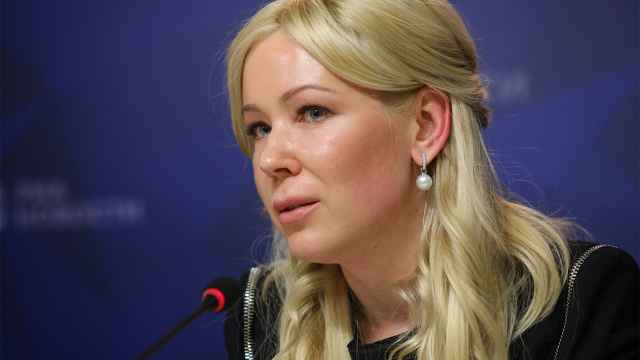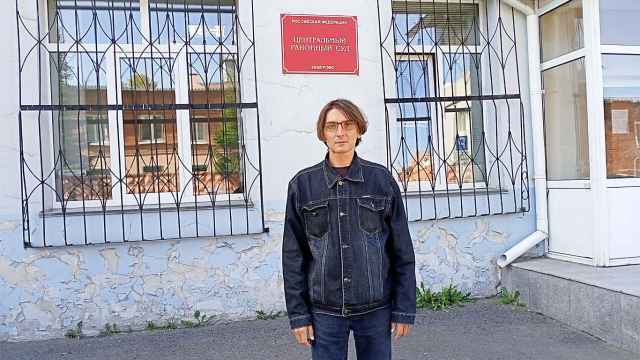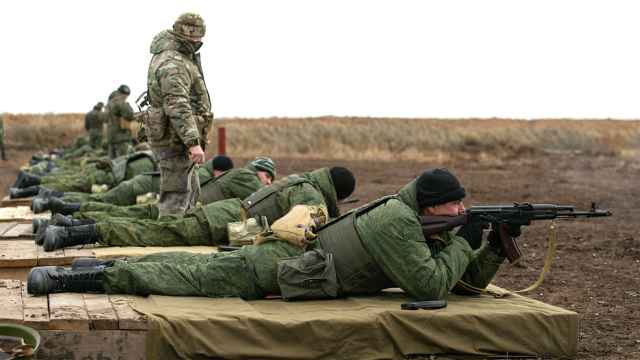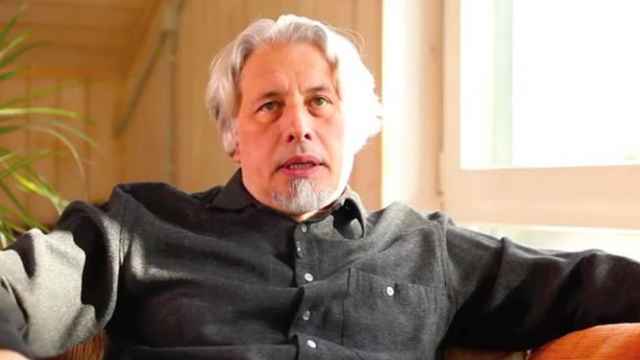For the fourth year in a row, Russia has been constructing a new order of life. This manifests not only in a protracted war, but a contraction in the cultural life that Russians can enjoy in their country.
For a time, the publishing industry continued in the face of government pressure. In the early years of the war, even the texts of so-called “foreign agents” were released without major difficulty. That said, there were conditions: the author’s status must be made clear and the cover has to be hidden, wrapped in plain paper like a cigarette packet. The flow of international translations, even for dangerous books, has not dried up, showing that publishers still have some appetite for danger.
True, publishers receive complaints and authors are subject to cancel culture. But that was true even before the war.
In May 2025, security services raided the Eksmo holding company, which owns the Individuum and Popcorn Books publishing houses. Three employees were slapped with extremism charges for publishing books that violate anti-LGBTQ+ “propaganda” laws. The era when “nobody cares about little books” ended badly.
Now, Individuum is still releasing books about the women’s orchestra of Auschwitz and literary policy in the Third Reich, as blackout poetry from the street artist Blue Pencil, who censored parts of “Yevgeny Onegin” to turn the text into an anti-war poem. Parallel imports have become increasingly widespread at the same time. As one of the key figures in Russian publishing told me in 2023: “Only a bullet will stop us.” Two years later, I know his position hasn’t changed.
The war affected cinema, too. In 2022, major foreign film distributors officially left Russia and parallel imports took their place. Bright figures from Russia’s once-competitive theater scene left, fell silent or even ended up in prison.
But most people involved in Russian film production stayed. That’s unsurprising: take one look at the scrolling names at the end of the next film you watch to get a sense of the sheer number of people involved in filmmaking.
And because it takes years for a film to move from the drawing board to the big screen, Russians had plenty of good homegrown movies to enjoy. Releases like Andrei Smirnov’s “For Us With You,” Mikhail Lokshin’s “The Master and Margarita,” Boris Khlebnikov’s “Three Minutes of Silence,” Roman Mikhailov’s films and a wave of women’s cinema from Lyubov Mulmenko to Natalya Nazarova still nourish my hopes for the industry.
I’m deliberately excluding all the moral and ethical spasms about how anyone can work in cultural industries against the background of the war. That is one of the few things that both pro- and anti-war Russians, as well as Ukrainians, can agree on. And they can certainly be understood. But emotions have dimmed, and Russian cinema has not yet exhausted its accumulated reserves. Still, it’s hard to deny that with each passing year, cinemas fill up with more clones of Hollywood franchises, not to mention dull money-laundering projects. These films don’t need to make money thanks to support from the Cinema Fund.
The war has even raised the status of some Russian films that are shown internationally, like Toma Selivanova’s “Ash and Dolomite.” If one manages to say something human in the face of censorship, repression and war, the value of that message naturally increases.
In a sense, things have become simpler. But in others, they have become more complicated.
New foreign films obtained through friendly countries help maintain a sense of normality, with films from Russia’s African, Asian and Latin American allies billing alongside domestic projects.
The Moscow International Film Festival may have lost its international accreditation. Critics who still enjoy mainstream favor point to new partnerships with countries like India as evidence of the industry’s health. After all, who wants to work with the degenerate West?
Curated selections of film classics, already abundant before, have now truly blossomed. Screenings of old films run constantly at Moscow’s Illusion cinema, which hosts the State Film Archive. With competent curation, cinemas could stockpile enough films to last for decades.
Cinema, perhaps the medium most accessible to the masses, reflects the broader trend well. Over the course of Putin’s reign, Russia convinced itself it was entirely self-sufficient. For a while, that insularity was condemned. But since the annexation of Crimea, it has have been recast as signs of strength and self-sufficiency. Of course, this is nothing but puffed-up self-importance. In cinema, as in every other industry, Russia is incapable of autonomy.
Culture is used to maintain the appearance of business as usual. Despite the changed landscape, a light has continued to shine, in one form or another.
A Message from The Moscow Times:
Dear readers,
We are facing unprecedented challenges. Russia's Prosecutor General's Office has designated The Moscow Times as an "undesirable" organization, criminalizing our work and putting our staff at risk of prosecution. This follows our earlier unjust labeling as a "foreign agent."
These actions are direct attempts to silence independent journalism in Russia. The authorities claim our work "discredits the decisions of the Russian leadership." We see things differently: we strive to provide accurate, unbiased reporting on Russia.
We, the journalists of The Moscow Times, refuse to be silenced. But to continue our work, we need your help.
Your support, no matter how small, makes a world of difference. If you can, please support us monthly starting from just $2. It's quick to set up, and every contribution makes a significant impact.
By supporting The Moscow Times, you're defending open, independent journalism in the face of repression. Thank you for standing with us.
Remind me later.






